Ethical Code
The Ethical Code of EUWEB Legal Essays. Global & International Perspectives is based on the COPE Best Practice Guidelines for Journal Editors.
EDITORS
The Editor-in-Chief, the Managing Editor, and Associate Editors (henceforth the Editors) are solely in charge of the decision of whether to publish articles submitted to the Journal. In making their decision, they will follow the Journal’s policy in ensuring the contributions adhere to high standards of quality and respect of the law. The Editors’ decisions on which articles to publish will be based on the scholarly importance of the proposed work as well as intellectual property issues, and will not publish articles if there are any reasons to suspect plagiarism. The Editors are in charge of evaluating the manuscripts based on the scientific content, without discrimination of the race, sex, gender identity, creed, ethnic origin, citizenship, or scientific, academic, and political position of the authors. The Editors and members of any working group undertake not to disclose information relating to the articles submitted for publication to persons other than the author, reviewers, and Editors. Privileged information or ideas obtained through the peer review, even when unpublished, will be kept confidential and not used for personal advantage. The Editors will guarantee the soundness and consistency of the evaluation mechanisms employed to examine, accept, or reject the articles submitted by authors, including systematically overseeing the peer review process and guaranteeing the full anonymity of reviewers with respect to the specific paper under examination. If the Editors notice or receive notification from a competent body or individual of errors or inaccuracies, conflict of interest, or plagiarism in a published article, they will promptly contact the author(s), and the Publisher will take the necessary actions to clear up the matter. Moreover, if necessary, the article will be withdrawn or a recantation published. The Editors will take reasonably responsive measures when ethical complaints are presented concerning a submitted manuscript or published paper, in conjunction with the Publisher (or society). Every reported act of unethical or unlawful behavior will be investigated, even if discovered years after publication. The Editors will keep a confidential database of the results of the peer review of all contributions, whether or not accepted for publication.
REFEREES
Peer reviews assist the Director and Editorial Board in making their editorial decisions. Moreover, they can suggest some adjustments or expedients to the authors with the aim of improving their contribution. Referees who do not consider themselves suitable for the proposed task or who know that they are unable to perform the task within the required timeframe are required to promptly notify the Editor-in-Chief. The review of the articles shall be conducted objectively, and any personal judgment about the authors is deemed inappropriate. Reviewers involved in the review process should disclose conflicts of interest resulting from direct competitive, collaborative, or other relationships with any of the authors, and remove themselves from cases in which such conflicts preclude an objective evaluation. The referees are required to give adequate reasons for their judgments, indicate the bibliographical references of fundamental works possibly overlooked by the author, report to the Editors any similarities or overlap between the text received and other works known to her/him. Sensitive information or ideas obtained through peer review are to be considered confidential and not used for personal gain. Similarly, the works must not be discussed with third parties without the explicit authorization of the Editor-in-Chief. Privileged information or ideas obtained through peer review must not be used for competitive gain. Referees should not agree to review articles that may give rise to conflicts of interest resulting from competitive, collaborative or other relationships with the authors, companies, or institutions associated with the paper.
AUTHORS
The authors are obliged to declare that their work is original in all its parts and that all the works consulted have been properly cited. If using the works and/or words of other authors, they must be appropriately paraphrased or duly cited. The articles must contain sufficient references to allow others to retrace the work, and the Authors should mention any publications that have influenced their work. Articles that repeat the same research results in more than one scientific journal should not be submitted, as simultaneously submitting the same contribution to multiple scientific journals is considered unethical, improper, and unacceptable. Authorship attributions should be limited to those who have made a significant contribution to the conception, planning, execution, or interpretation of the study reported. Moreover, all those who meaningful contributed to conceiving, organizing, undertaking, and revising the research that the article is based on should be indicated as co-authors. In addition, the author who submits the paper for submission must ensure that all those who have made a significant contribution to the conception, execution, and revision of the research underlying the paper appear as co-authors and have given their approval to the final version of the paper and its publication. All authors are obliged to unequivocally declare that there are no conflicts of interest that might have influenced the results obtained or the interpretations suggested. Moreover, the authors must indicate any financing received for the research or project the article is based on. When an author in her/his article identifies a significant error or inaccuracy, he/she shall promptly inform the editors and provide them with all the information required to list the relevant corrections at the bottom of the article itself.





